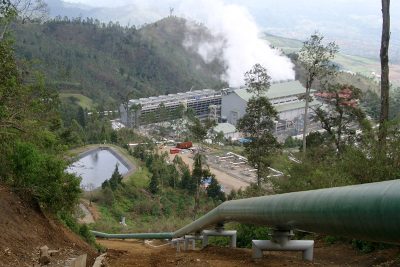KUTh Energy not successful in appeal on contract in Northern Marianas
Australian KUTh Energy looses appeal on the withdrawal of a bid to develop geothermal energy that it had won to only see it being put forward as RFP later.
The rather long an unpleasant story of getting geothermal development started in the U.S. territory of the Northern Marianas in the Pacific, Australian KUTh Energy received another blow after having initially won a tender for a geothermal project on this small island state.
In 2012, KUTh Energy “bagged the Commonwealth Utilities Corp.’s bid to develop geothermal energy on Saipan, only for that same request for proposal to be cancelled months later.
Now the Office of the Public Auditor has rejected Australian-based KUTh Energy’s request for reconsideration of a decision to cancel a request for proposal for geothermal energy development on Saipan.
The Capital Improvement Project Office—not CUC—issued a new RFP later on, but for geothermal consulting services.
It is hard to grab what actually has been going on, but in essence it seems some politics at place that delay or possibly even stop geothermal activities in the Marianas altogether. This is a shame since there was U.S. funding available for some work, but it seems now some fossil fuel based energy generation is preferred.
“Having considered all legal and factual arguments set forth by KUTh, and discussed in detail below, OPA hereby denies KUTh’s request and affirms OPA Appeal Decision BP-A075,” OPA said in an Oct. 2 decision by legal counsel James W. Taylor and concurred by Public Auditor Michael Pai.
KUTh’s request provides four factual and legal grounds for review. These include OPA’s failure to address CUC’s failure to negotiate and act in good faith, and persuasive evidence supporting a finding that CUC failed to act and negotiate in good faith, if not bad faith.
The other two are OPA’s failure to provide KUTh a copy of the CIP Office’s June 18, 2013, response for comment as required and requested by KUTh, and CUC—through the governor—allegedly acted in bad faith when it negotiated with another independent power producer at the same time they were negotiating with KUTh.
OPA said that without evidence of bad faith, OPA will not attribute improper motives to government officials based on inferences or suppositions.
It also said that without some proof that the government intentionally strung KUTh along or intentionally misled KUTh with full knowledge that the government had no intention of pursuing any geothermal energy exploration project, such allegations do not rise to the level of bad faith.
OPA said the pursuit of multiple projects at the same time, even if mutually exclusive, does not per se equate to bad faith.
“KUTh’s failure to point out any evidence of bad faith behind the decision to cancel the -048 RFP and the fact that the government subsequently solicited a similar, but substantively different, geothermal exploration solicitation, with the -024 RFP, eliminates any cause for OPA to question the government’s cancellation of the -048 RFP,” OPA said.
CUC issued a notice of intent to award a contract to KUTh on Jan. 27, 2012, for geothermal energy development.
Eight months later, former lieutenant governor and now governor, Eloy S. Inos, told CUC in a letter that the specifications for the geothermal project were being restructured.
The administration said at the time they would like to separate the drilling exploration from production, which they communicated with KUTh.”
Source: Saipan Tribune via EIN News



















